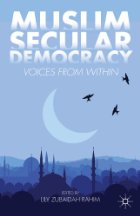 In July 2013 I posted a anthropologist’s analysis of today’s conflicting visions of secularism in Turkey:
In July 2013 I posted a anthropologist’s analysis of today’s conflicting visions of secularism in Turkey:
Can Democracy Survive a Muslim Election Victory?
That was 2013, exactly two years ago to the month. Then, I wrote of Christopher Houston’s view:
There are other “secularists”, however, who fear the democratically elected Muslim party is attempting to “Islamize” the nation by stealth, and these people are increasingly expressing disenchantment with Western-style democracy on the one hand, and a preference for a military coup on the other. Though a minority, they do have close ties with key military figures who are sympathetic to their views.
We saw what happened in Egypt, and before that, in Algeria, when democratically elected Muslims found themselves removed by the military. Both coups appear to have had significant popular support.

Further, Houston wrote:
Militant laicists are searching for a revolution geared toward a takeover of state power to reimpose their program of militant laicism from above.
Further, much of their rhetoric suggests that they are not immune to the seduction of political violence or terror; and most of all they are not committed to, or even feel threatened by, “democracy” and legal reform, because it appears to dilute their political and economic domination. (Houston, p. 259, my emphasis)
Robert Fisk has written up a less panglossian (if that’s what it is) portrayal of Turkey’s reconciliation of democracy with an Islamist party in power. Al Jazeera has published interviews with a number of Turkish citizens. It’s all too murky at the moment, at least to me, to know what is really happening right now.
Houston, C. (2013). “Militant laicists, Muslim democrats and liberal secularists : contending visions of secularism in Turkey”, in Rahim, L. (Ed.), Muslim Secular Democracy: Voices from Within, Palgrave Macmillan, New York, NY.

